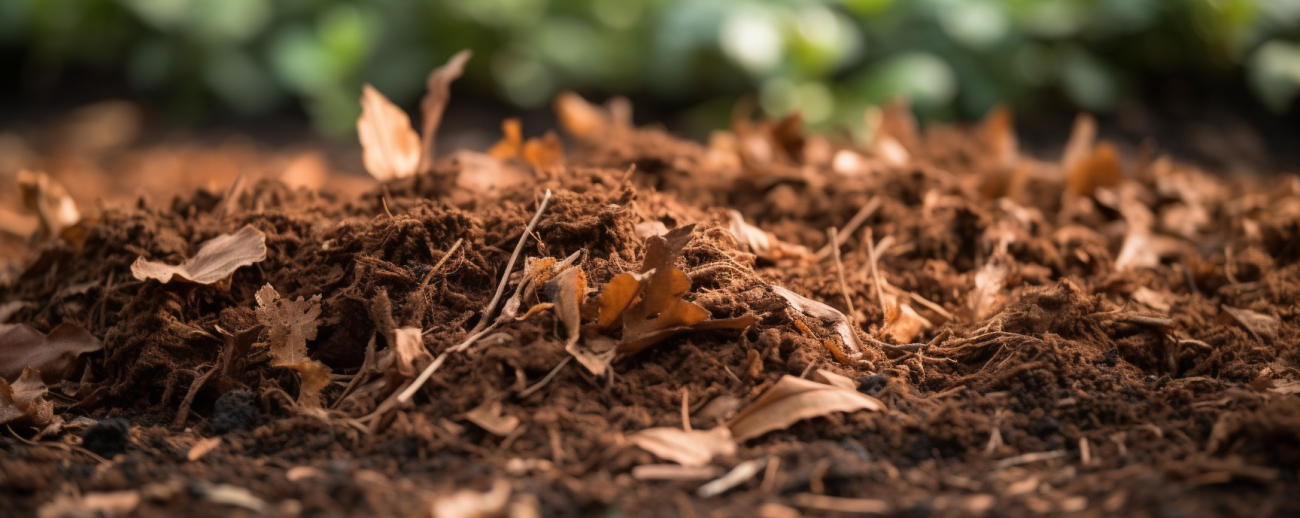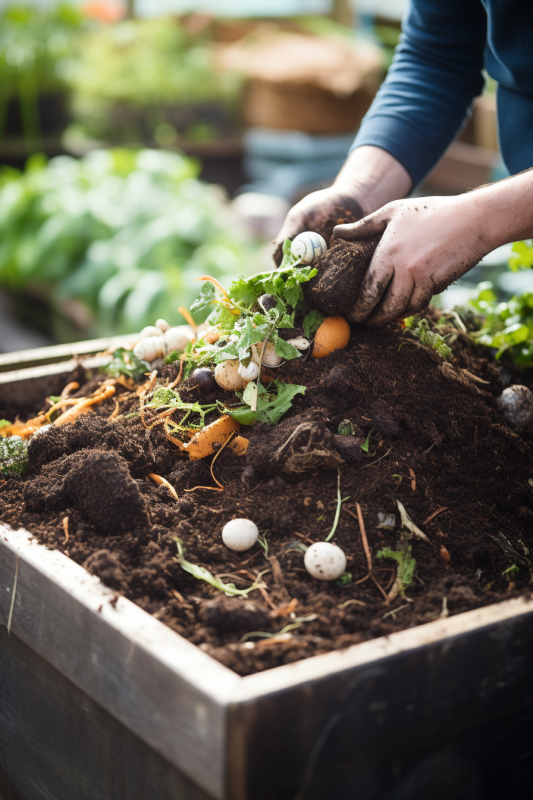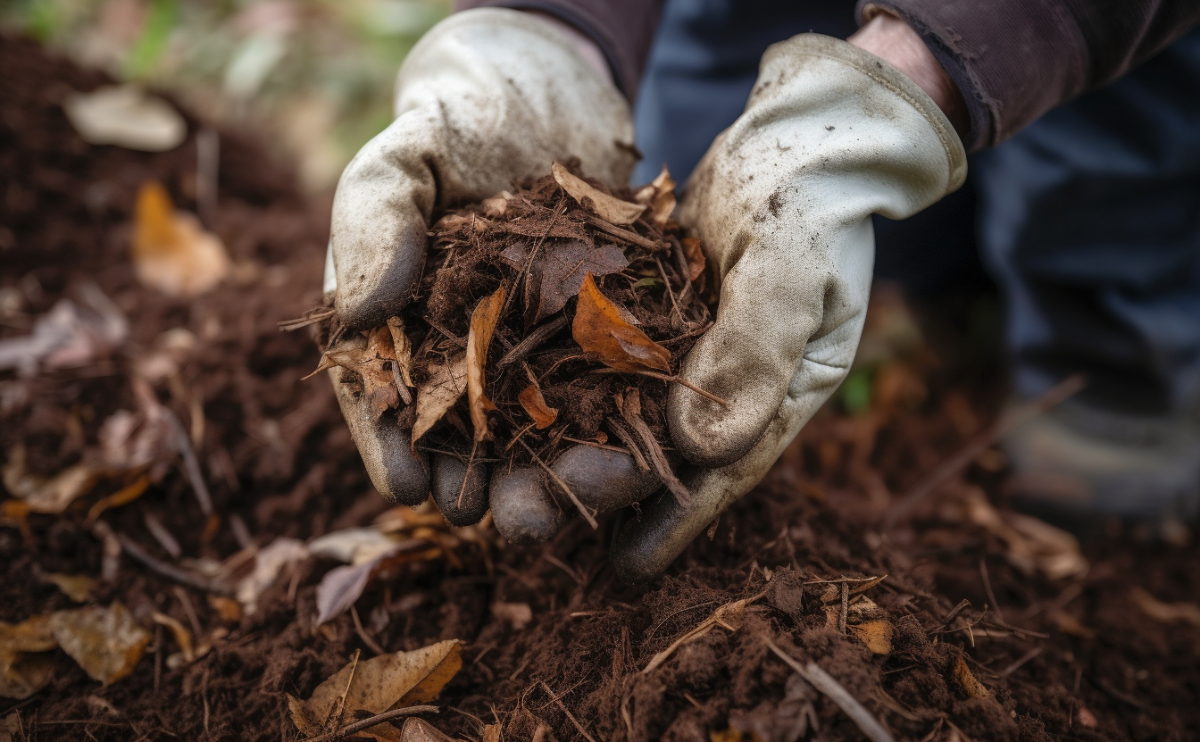For the passionate gardeners of the USA, the power of mulch and compost is undeniable. These two elements are pivotal in creating a flourishing garden. However, understanding the differences and knowing when and how to use each can be a game-changer. In this comprehensive guide, we’ll explore the world of mulch and compost, enlightening American gardeners on their optimal usage.
Deep Dive into the World of Mulch
Mulch is a layer of material placed on top of the soil. It serves as a protective barrier and is a gardener’s best ally for several reasons:
- Weed Suppression: Mulch prevents weed growth by obstructing sunlight, a natural inhibitor of weed germination.
- Moisture Retention: It reduces water loss through evaporation, a boon during the hot and dry summer months experienced across the US.
- Temperature Regulation: Mulch is an excellent insulator, protecting plant roots from temperature extremes common in the US climate.
There are various types of mulch, including organic and inorganic options. Organic mulches, like straw, wood chips, or grass clippings, slowly decompose, adding nutrients to the soil over time. On the other hand, inorganic mulches like rubber or gravel, don’t contribute to soil fertility but do aid in weed control and water retention.

The Wonders of Compost: Gardening’s Black Gold
Compost, the decomposed organic matter, is often called “black gold”. It is one of the most nutrient-rich amendments you can add to your garden soil. The benefits of compost are multifaceted:
- Soil Structure Improvement: Compost breaks down the tightly packed particles in clay and silt soil, enhancing its drainage capability. Conversely, in sandy soil, it helps retain water, preventing rapid moisture loss.
- Nutrient Addition: Rich in essential nutrients, compost feeds your soil, promoting vigorous plant growth.
- Microbial Activation: The process of decomposition in compost production fosters beneficial soil organisms, enhancing soil health.
Creating compost at home is an eco-friendly practice. It can be made from kitchen scraps, yard waste, and other organic materials.

Mulch and Compost: The Key Differences
Mulch and compost, although both beneficial to the garden, serve different purposes and are not interchangeable.
- Application: Mulch is spread on the soil surface, while compost is incorporated into the top layers of the soil.
- Purpose: Mulch is primarily a barrier that conserves moisture, suppresses weeds, and regulates soil temperature. Conversely, compost mainly serves to improve soil structure and enrich it with essential nutrients.
- Material Composition: Mulches can be either organic or inorganic, while compost is strictly organic.
Perfect Pair: Using Mulch and Compost Together
While they serve different roles, mulch and compost can be used in tandem for a flourishing garden. Adding a layer of compost to your soil improves its structure and nutrient content. Subsequently, applying a layer of mulch conserves moisture and suppresses weeds. This synergistic combination fosters an ideal growing environment for plants.
In a Nutshell
While mulch and compost may seem similar, they each serve unique, vital functions in the garden. Understanding their roles and effectively using both can significantly enhance the health and productivity of your American garden. Whether you are tending to a backyard vegetable plot in Texas, managing an ornamental garden in Oregon, or growing herbs on a New York balcony, the effective use of mulch and compost can be your key to gardening success. This guide serves as a stepping stone towards a greener and more productive gardening journey.
Detailed Guides for Planting Vegetables, Herbs, Greens & Lettuce, Peppers, and Wildflowers:
At FarmerValley we offer detailed guides for planting vegetables, herbs, greens & lettuce, peppers, and wildflowers. These guides provide step-by-step instructions for planting and caring for your plants, as well as tips for getting the best results. Check our growing guides and plant your own non-GMO garden with confidence.
Planting non-GMO seeds is a great way to enjoy fresh and healthy vegetables and herbs while also knowing that you’re avoiding harmful additives. With these essential tips and top lists, as well as our detailed guides, you’ll be on your way to a bountiful harvest in no time.


